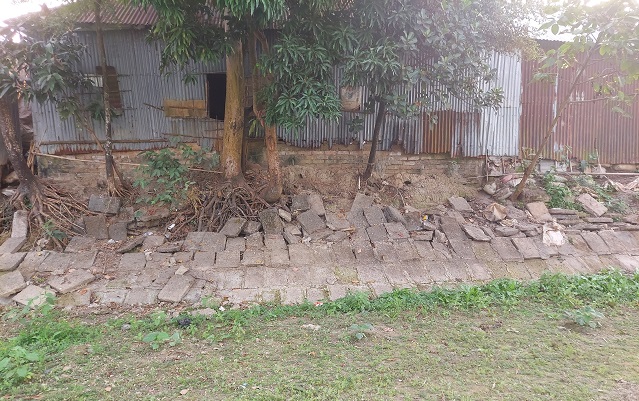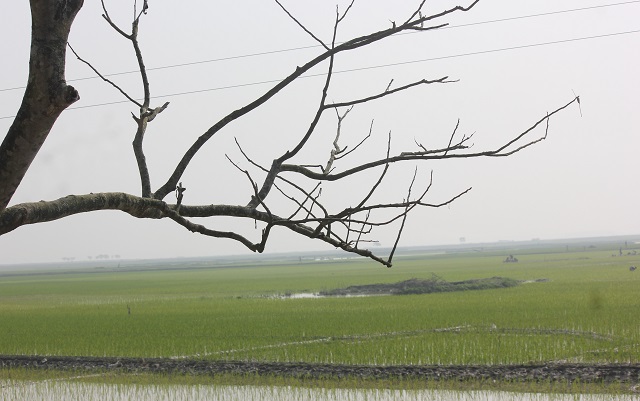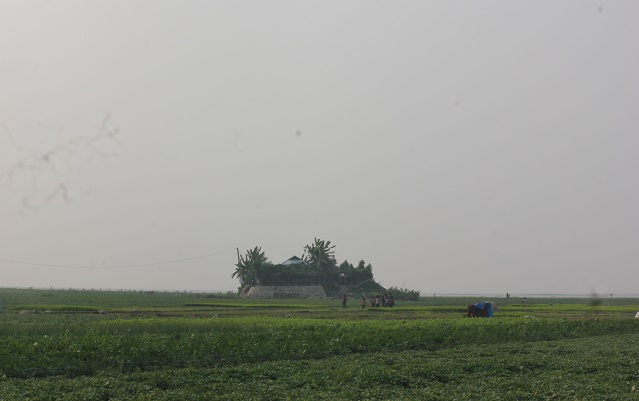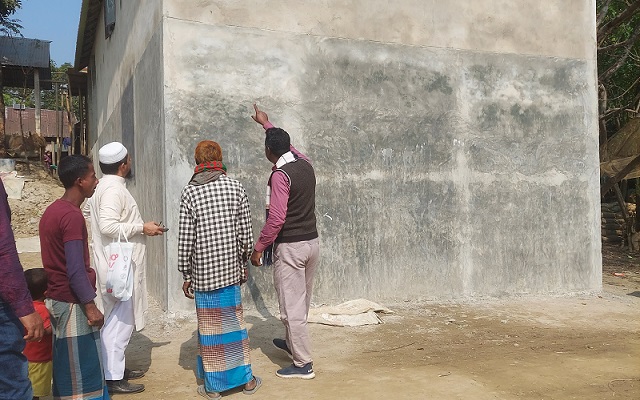Climate-resilient infrastructure for sustainable community life in the Haor region of Bangladesh
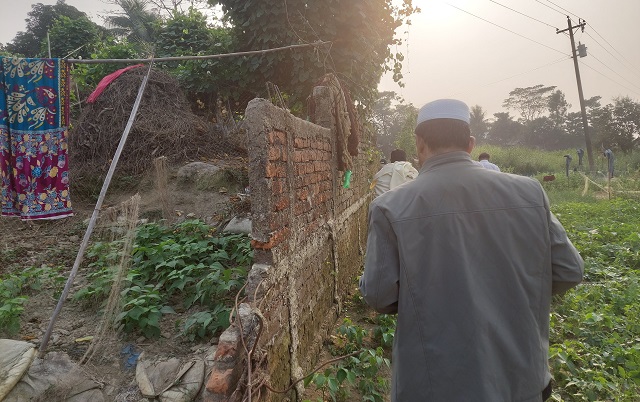
The Haor region of Bangladesh is characterized by large bowl-shaped floodplain depressions with unique hydro-ecological characteristics. The region remains unreached to adapting to climate change. Consequently, the Haor is prone to flash floods caused by unpredicted and excessive rainfall which causes more erosion to the hatis (villages). The goal of the project is to make selected communities in the Haor region more climate resilient by promoting climate adaptive infrastructure and by improving biodiversity conservation. The project also prevents the hatis from erosion by constructing concrete walls around selected hatis and creating a buffer zone of local tree species around it. The selected tree species are indigenous and available as a natural sapling.
INITIAL SITUATION
Bangladesh is one of the most vulnerable countries to climate change. Haors are located in the north-eastern region of Bangladesh, covering about 1.99 million hectares and accommodating about 19.37 million people. Wave erosion, known as afal, is one of the major threats to the haor settlements where people build houses compactly on a small, raised area due to a lack of available raised land. Waves from afal inundate the common area destroying harvests of the households living in the hati. Also, more than 70 per cent of the houses are made of mud, which leaves them vulnerable to intensive rainfall and storm as wave erosions wash off soil from the raised area damaging the houses and other structures.
TARGET GROUPS
All inhabitants of the selected hati areas of intervention are targeted. Palli Karma Sahayak Foundation (PKSF) has developed a set of criteria considering the expected indirect impacts on biodiversity and livelihoods: people who live in the haor areas of Sunamgonj District – one of Bangladesh’s most flood prone districts – and who are vulnerable to flash flood and erosion; priority on women and households with members from disadvantaged groups; poor and ultra-poor households; level of inundation of the hati; finally hatis which are not receiving any support from other projects.
Sunamgani has a total population of 2,467,981 people of which almost two-third are poor. The project selects three unions, which represent the lowest administrative unit in Bangladesh, for implementing three small scale projects based on the inundation level and poverty situation. On an average, 1,000 to 1,500 households will benefit from each selected union, each household consisting of 4.5 persons on average. This results in a total amount of 3,000 to 4,500 households with 12,000 to 18,000 persons reached by the project.
GALLERY
PROJECT APPROACH
The project aims at enlarging the hati area as well as developing a post-harvest crop management area. The project follows a community-based approach. Two or more adjacent hati areas are developed in a cluster, avoiding land-use disputes. By constructing a concrete wall around selected hatis and creating a buffer zone of local tree species around it, erosion induced by strong waves from the river is prevented. The planned tree species are indigenous and available as a natural sapling. For plantation, the saplings are collected from natural sources and the nearby nursery. During the project intervention, different community-based groups are formed and responsible for the tree plantation and its care. The hati dwellers play a critical role in the implementation and management of the interventions by the project.
ABOUT THE ORGANISATION
Palli Karma Sahayak Foundation (PKSF) was established by the Government of Bangladesh in 1990 and registered under the Companies Act 1913/1994 as a ‘not for profit’ organization with the vision of ‘A Bangladesh where poverty has been eradicated; ruling development and governance paradigm in inclusive, people-cantered, equitable and sustainable; and all citizens live healthy, appropriately educated and empowered and humanly dignified life’.

